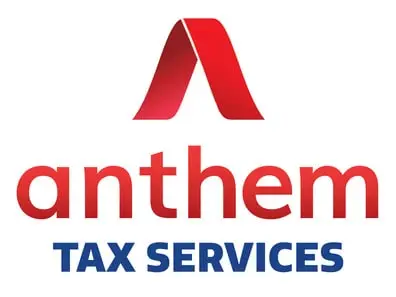Resolve unpaid taxes once in for all.
Do you need the IRS to leave you alone for a while? You can make such a request! CNC (Currently Not Collectible) is a taxpayer status issued to people who are unable to repay tax liabilities to the government. After an account becomes designated as CNC, it puts the process of collection by the IRS on hold. As such, no threatening levies, harassing calls, or intimidating IRS soft letters are issued. If you require relief from back taxes, obtained an Intent to Levy notice, or are in the process of having your wages garnished, it is worth your while to keep reading!



Who Qualifies for Currently Not Collectible Status?
According to the IRS (as per Part 5, Chapter 6, Section 1 of their Internal Revenue Manual), a taxpayer may be eligible for Currently Not Collectible status if they can prove financial difficulty. Specifically, applicants must establish that there is very little money to live off of once tax debts are subtracted. Such taxpayers must explain why they are at an extreme economic disadvantage, as opposed to a simple setback.
In order to determine eligibility, an officer of the IRS will assess the taxpayer’s TPI (Total Positive Income). This refers to positive values displayed in a tax return’s income portion, which includes:
- Earnings
- Dividends
- Interest
- Schedule F revenue (commercial farming ventures).
- Schedule C revenue (profits from self-employment earnings).
- Property income.
- Other investment or income sources.
Your income will be tallied up by the IRS and contrasted against both local and national standard living costs, which are categorized into 4 groups. The standards established by the IRS lets you subtract the following from your TPI:
- National standards – refers to various monthly living costs (including food, household items, services and apparel, personal services and products, and miscellaneous costs). The IRS allows national standard deductions of $639 for individuals and as much as $1650 for a family of four.
- National standards – healthcare expenses paid out of pocket. Deductions can be made for prescription medications, medical services, and essential living supplies like eyeglasses (as much as $117 for people 65 years old and over; $49 for people under the age of 65).
- Local standards – utility and housing expenses. These standards include costs for rent/mortgages, garbage collection, heating, gas, property taxes, etc. The deductible expenses differ per county (as per data obtained from the American Community Survey, BLS, and the US Census Bureau). To find out what your county’s deductible amount is, click here.
- Local standards – expenses for transportation. Deductions for lease payments or monthly loans (a.k.a. ownership costs) are quantified using nationwide figures. Other monthly operation expenses are quantified by the Metropolitan Statistical Area and Census Region. $189 can be deducted for public transportation; $485 can be deducted for ownership expenses on a single video, while $970 can be deducted for a couple of vehicles. Standard operating expenses differ per region.
Your standard costs will be combined by the IRS before being subtracted from your TPI. This will establish your NDI (Net Disposable Income). In theory, this amount can be used for tax payments. The IRS may deem your account CNC if tax repayments would leave you in a difficult economic position (after subtraction of your standard living costs are made).
What Happens When the IRS Designates an Account ‘Currently Not Collectible’?
Any tax levies imposed by the IRS will be stopped once a taxpayer is granted CNC status. Collection activity and enforcement of it will be temporarily put on hold. After the IRS decides that you are able to repay amounts owing because of financial challenges, they are obligated to leave you be. You will still receive a bill in the mail every year, though, but the IRS won’t aggressively try to collect debts from you during this period. Essentially, you’ll be free (for a while) from:
- Wage garnishments.
- Repeated collection attempts.
- Continuous letters and calls.
- Hits to your credit score.
- Debt payment deferrals.
Be mindful, though, that after your account is classified as CNC, your debt won’t be eliminated; you are still obligated to repay your debt and are expected to do so. Rather, the IRS gives you a bit of a breather so you can make ends meet. Even though the IRS may grant you CNC, your financial circumstances will be re-evaluated at a later date to determine if you have the ability to repay outstanding liabilities.
After the taxpayer receives Currently Not Collectible status, their income tax returns will be monitored by the IRS every year to determine if there has been an increase in earnings. The taxpayer will lose their CNC status if there has, indeed, been an increase in revenue. Taxpayers will be asked to submit revised financial statements to establish if payments can be made.
It is also worth noting that penalties and interest keep accruing on whatever you owe the IRS. You are saving some money in the short term, but inevitably, your debts will catch up to you.
You’re still obligated to have income taxes filed when you have CNC status. All tax refunds you are entitled to will be applied to outstanding debts as long as a balance exists. As such, it is worthwhile to speak with a tax expert to find out what your options are, as far as relief from back taxes go. For example, based on what your circumstances are, a compromise offer with the IRS could be to your benefit.
How Long Will I Have CNC Status For?
CNC is not a permanent answer; rather, it is short-term relief. The duration that an account remains protected under Currently Not Collectible status differs per case. After an IRS officer deems an account as CNC, they will give it a closing code (indicating that your case will be reopened for review at a later date). The code used (and when your case will be re-opened) is contingent on your financial situation and NDI.
For the most part, the government has a decade to try and collect taxes owing from you. After 10 years, enforcement of the statute of limitations sets in. When you receive CNC status, the statute of limitations will apply to back taxes you owe, too. The statute of limitations begins on the date taxes are due and lasts for 10 years. If taxes are not repaid within ten years, the IRS loses the opportunity to try and collect them. Note – there are certain exceptions made.
How to Apply for CNC Status with the IRS?
To qualify for CNC status, you must submit a comprehensive financial report to the IRS. This report will establish your case’s fate. Before you apply, ensure that you have filed tax returns for years prior. Even if you’re not able to repay anything at the moment, having all of your taxes filed will keep you in the IRS’ good graces.
The documentation required for Currently Not Collectible status applications should indicate:
- Your living expenses and income.
- What your assets are and the market values for them.
You should include the following with your application:
- The last 3 months’ worth of bank statements.
- Receipts for medical expenses paid out of pocket.
This documentation will be helpful in completing Form 433, which is an IRS-mandated financial statement. This form gives the government’s a blueprint of your finances, which they will use to decide if you qualify for CNC status.
Documentation preparation entails the following steps:
- Make a note of all your assets that are both intangible and tangible (such as stocks, automobiles, property, etc.).
- Figure out what the market value is for your assets.
- Determine the amount of income you earned within the last 90 days.
- Establish how much money you spent within the last 90 days.
- Chronicle and average-out your 90-day income, then contrast it against your expenses (which should be categorized).
Applying for CNC status may sound like an overwhelming endeavor to you. Getting help from a professional optimizes your odds of being granted CNC status. Our experienced team of tax specialists can make a case to the IRS for you. By doing so, you’ll get the most realistic solution possible. Let our seasoned experts collaborate with both you and the IRS through the entire process. Get in touch with us now to learn how your case can be resolved. You’ll see just how easy it is to achieve financial freedom.

